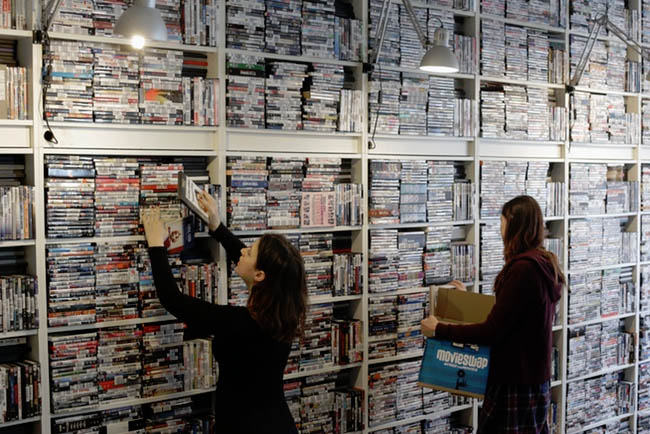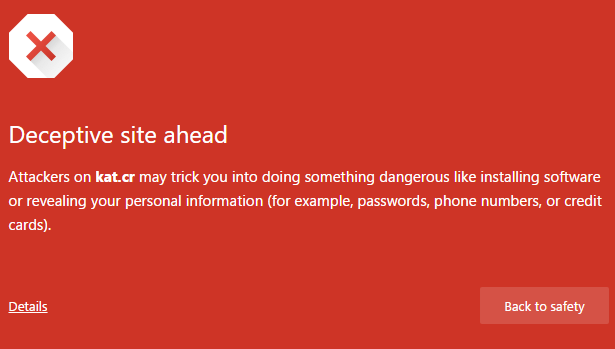
Marah Hardt is on a quest to investigate the elaborate mating rituals of life in the deep. The post When Your Job Is Researching (Animal) Sex on the Beach appeared first on WIRED.
Unrelated to the whiskey.

Marah Hardt is on a quest to investigate the elaborate mating rituals of life in the deep. The post When Your Job Is Researching (Animal) Sex on the Beach appeared first on WIRED.

A security bug dubbed “Badlock” by the company that discovered it has now been renamed “Sadlock” by critics who say they hyped the flaws. The post That ‘Badlock’ Bug Is More Hype Than Hurt appeared first on WIRED.

Today Facebook is announcing a 360-degree video camera. And—not for the first time—it’s giving away the hardware and software designs for free. The post How Will Zuckerberg Rule the World? By Giving Facebook’s Tech Away appeared first on WIRED.

Facebook has built its own 360-degree video camera, and this summer, it will give away both the hardware designs and software for free. The post Facebook Built a 360-Degree Video Camera. Oh, and the Design Is Yours for Free appeared first on WIRED.
 YouTube has grown into the world’s leading video and music service and has partnerships with thousands of artists and other publishers around the globe. While many are happy with the revenue they’re generating from the Google-owned platform, others are not.
YouTube has grown into the world’s leading video and music service and has partnerships with thousands of artists and other publishers around the globe. While many are happy with the revenue they’re generating from the Google-owned platform, others are not.
According to various sources, Universal’s deal with YouTube has already expired and deals in place with the likes of Sony and Warner will time out later this year. As a result the major recording labels are in negotiations with YouTube and are demanding better rates than the ones they currently describe in disparaging terms.
So if the RIAA can negotiate decent deals with the likes of Apple Music and TIDAL, why does it continue to have problems with Google’s YouTube? To put it bluntly the labels believe that YouTube is gaming the system and unsurprisingly it all comes down to the safe harbor provisions of the DMCA.
While YouTube quickly responds to takedown notices sent by the labels, the RIAA says the platform is laden with unlicensed music uploaded users and as the law currently stands all it can do is keep taking it down. That’s something they do through gritted teeth.
In an interview with Recode, RIAA chief Cary Sherman was asked why following the Viacom case the labels don’t accept the current legal position. He pulls no punches.
“We accept the inevitability of death. It doesn’t mean we have to like it,” he says.
Describing the DMCA as “dysfunctional”, Sherman says that the Copyright Office’s consultation on the effectiveness of the DMCA is allowing stakeholders to have their say but in the meantime YouTube is bullying negotiations by utilizing the shield of safe harbor.
“When you compare what we get when we get to freely negotiate, with a company like Spotify, vs. what we get when we are under the burden of an expansively interpreted ‘safe harbor,’ when you’re negotiating with somebody like YouTube, you can see that you’re not getting the value across the platforms that you should,” Sherman says.
According to the RIAA chief the solution is for the current notice-and-takedown system to become notice-and-staydown, so that when one unlicensed copy of a song is removed from YouTube all other uploads of the same content are permanently barred from the system.
“If we had a system where once a song was taken down, you had a filtering system that prevented it from going back up, we wouldn’t have to be sending hundreds of millions of notices on the same content over and over again,” Sherman notes.
So the RIAA says its stuck between a rock and a hard place. On the one hand they want their properly licensed music on YouTube but in return they want all unlicensed copies of the same removed from YouTube on a permanent basis. Sherman says without that kind of agreement the one-sided negotiation process with the company goes something like this.
Look. This is all we [YouTube] can afford to pay you. We hope that you’ll find that reasonable. But that’s the best we can do. And if you don’t want to give us a license, okay. You know that your music is still going to be up on the service anyway. So send us notices, and we’ll take ’em down as fast we can, and we know they’ll keep coming back up.
“That’s not a real negotiation. That’s like saying, ‘That’s a real nice song you got there. Be a shame if anything happened to it’,” Sherman says.
In effect, Sherman accuses Google-owned YouTube of running a DMCA-protected protection racket, with music possibly being offered freely to the masses in the same manner that bars might get inexplicably fire-bombed in Chicago during the night. While Google hasn’t responded to Sherman’s comments directly, a submission it has made to the Copyright Office pours cold water on the flames.
“Some in the recording industry have suggested that the safe harbors somehow diminish the value of sound recordings, pointing to YouTube and blaming the DMCA for creating a so-called ‘value grab.’ This claim is not supported by the facts,” the company writes.
Noting that YouTube has had licensing agreements in place with the record labels for many years, Google says it is simply incorrect that it relies on the DMCA instead of licensing content. Furthermore, Google says that those who claim that royalty rates are too low because of the DMCA notice-and-takedown process are forgetting the tools already provided by YouTube.
“This claim…ignores Content ID, which has been in existence since 2008 and which record labels (and many other copyright owners) use every day to monetize their works on YouTube. Thanks to Content ID, record labels do not have to rely
solely on the DMCA’s notice-and-takedown process on YouTube — they can remove any or all user uploads of their works from the platform on an automated and ongoing basis,” Google writes.
“Indeed, since January 2014, over 98% of all YouTube copyright removal claims have come through Content ID. Although business partners can be expected to disagree from time to time about the price of a license, any claim that the DMCA safe harbors are responsible for a ‘value gap’ for music on YouTube is simply false.”
With this war of words set to rage on, RIAA chief Cary Sherman says that he hopes for a future in which the DMCA has been fixed and the balance of power shifts back to the labels.
“I think the record companies would like to be partners with YouTube. But it’s a little hard to call it a partnership when it’s so one-sided in terms of the negotiating leverage,” he says.
Notice-and-staydown certainly has the potential to push the point of leverage back into the labels’ favor, but there’s a long way to go yet. Content ID aside, it doesn’t look like Google wants to play ball either.
Source: TF, for the latest info on copyright, file-sharing, torrent sites and ANONYMOUS VPN services.
Source: TorrentFreak
 “What if you had an unlimited access to the LARGEST ONLINE MOVIE LIBRARY EVER? A community based library, where you could watch any movie online. A library where you could swap films with contributors all over the world and discover an infinite number of stories.
“What if you had an unlimited access to the LARGEST ONLINE MOVIE LIBRARY EVER? A community based library, where you could watch any movie online. A library where you could swap films with contributors all over the world and discover an infinite number of stories.
This is the revolutionary idea behind MovieSwap,” the service’s Kickstarter teased last month. The proposition did indeed sound attractive and how it would be achieved somewhat intriguing.
The team behind MovieSwap said they would take the idea of swapping a physical DVD with friends to its Internet-powered conclusion. After collecting millions of genuine DVDs from all over the world, ripping them and storing them in the cloud, the service would allow members to play them on any device, anywhere.
MovieSwap?
“Then, just like you can legally lend, swap, or offer a DVD to a friend, MovieSwap works in the same way, but on a much larger scale thanks to its remote playback technology,” the team said.
MovieSwap’s Kickstarter began with a modest target of just 37,000 euros, a target that was easily surpassed with more than 87,000 euros in the pot by the time the fundraiser ended. Now, however, the dream is over.
“The MovieSwap campaign almost reached its end. However, despite its incredible success, we, unfortunately, need to announce that we have made the difficult decision to cancel it,” backers were told this afternoon.
According to the MovieSwap team the project netted almost 5,000 supporters, which places it in the top 400 of almost 100,000 Kickstarter campaigns. But despite raising more than enough money, 4,829 backers simply wasn’t enough. Behind the scenes it appears there was an undisclosed 10,000 backer threshold, under which other investors would decline to finance the project.
“Our investors were expecting more, and we cannot launch MovieSwap without their full support, despite your mobilization. To start this crazy adventure and launch MovieSwap globally, we need to invest a few millions,” the team say.
“Under the symbolic 10,000 backers barrier, our investors consider it would be too risky to bet on our project. Without funding, we cannot guarantee MovieSwap will be available in the expected time. That’s why we prefer canceling our project and have your money refunded.”
The news has enjoyed a mixed reception among those who backed the Kickstarter.
“I’m upset. I would have tried to garner more support if you had a magic number. Hiding that information from your Kickstarter supporters is just bad form,” one said.
“A huge disappointment,” said another. “I imagine that this decision was carefully considered and not made with a light heart. Know that we will be there to support you and provide investors the necessary proof of our passion!”
What is slightly surprising is that just a week ago TorrentFreak was discussing the future of the project with the MovieSwap team after it had reached its funding target. There was no mention whatsoever of any 10,000 backer limit. We did, however, discuss the legality of the service.
In our original article I referred to the project as brilliantly innovative, but I doubted that Hollywood would allow MovieSwap to thrive. Hollywood has a history of hostility towards third-parties wading into ‘their’ market without licensing discussions and I wondered how MovieSwap would fare.
To that end I asked some pretty probing questions, all of which centered on how MovieSwap would be able to operate legally in several key market areas. A response to that wasn’t forthcoming and then came today’s news.
“Honestly, we’re pretty disappointed, as the campaign began very well, and all our team was deeply involved in the project,” MovieSwap CEO Cyril Barthet informs TorrentFreak.
“But as everyone knows, such projects need a substantial investment to get off the ground and deploy worldwide. The level we reached did not convince our current round enough – very ambitious and risky model indeed.”
But despite the setbacks and risks, the team remains optimistic.
“As Bruce Wayne’s father said: ‘Why do we fall ? So we can learn to pick ourselves back up’,” Barthet says.
“It’s quite the same for lean start-ups. So, as we already run a disc-to-digital and streaming platform in France (‘Vodkaster‘), we will focus on it with a step-by-step approach to make it grow locally then globally,” he concludes.
So at least for now it appears that MovieSwap won’t see the light of day, nor will we see Hollywood’s response to it. That’s a shame, but not even millions of dollars would be enough to pacify the studios if the service had truly delivered on its promises. And they were pretty exciting.
Source: TF, for the latest info on copyright, file-sharing, torrent sites and ANONYMOUS VPN services.
Source: TorrentFreak
 There’s a slight panic breaking out among KickassTorrents users, who are having a hard time accessing the site.
There’s a slight panic breaking out among KickassTorrents users, who are having a hard time accessing the site.
Over the past few hours Chrome and Firefox (and Safari) have both started to block access to Kat.cr due to reported security issues.
Instead of a page filled with the latest torrents, visitors are presented with an ominous red warning banner.
“Deceptive site ahead: Attackers on kat.cr may trick you into doing something dangerous like installing software or revealing your personal information,” the Chrome warning reads.
Chrome warns against using Kat.cr
Firefox users encounter a similar banner, branding Kat.cr as a “web forgery” which may trick users into sharing personal information. This may lead to identity theft or other fraud.
“Web forgeries are designed to trick you into revealing personal or financial information by imitating sources you may trust. Entering any information on this web page may result in identity theft or other fraud,” the browser warns.
Firefox’s alert
Interestingly, Google’s safebrowsing page for Kat.cr currently lists no issues with the site. (update: it’s now listed as deceptive)
The KAT team informs TorrentFreak that they are looking into the issue and hope to have the blocks removed soon.
This is not the first time the two browsers have flagged KickassTorrents. Last year site was flagged on several occasions after it was linked to a malicious advertiser.
At the time the KAT team said they addressed the issue in a matter of hours, but it nonetheless took more than two days before the site was unblocked on both Firefox and Chrome.
Impatient or adventurous users who want to bypass the warning can do so by disabling their browser’s security warnings altogether in the settings, at their own risk of course.
Update: Safari is also blocking Kat.cr, and Avast antivirus also displays a warning.
Update: The KAT team has found the problem, which is related to the link wrapper the site uses for external links. The wrapper is blocked now and Google has been informed accordingly.
“In order to improve users security we are wrapping every external link in confirmation window and this time google alert is referring to a wrapped link that has been posted in our community. We’ve blocked that site thus rendering those external links unusable. We’ve reported it to google and expecting this security alert soon to be lifted,” the KAT team informed TF.
Source: TF, for the latest info on copyright, file-sharing, torrent sites and ANONYMOUS VPN services.
Source: TorrentFreak

Bigelow Aerospace’s inflatable space habitats find a company with the Atlas rockets The post Ace Rocketeers Swear They’ll Put Inflatable Space Stations in Orbit, and Soon appeared first on WIRED.

The new Starz show tempers body heat with cool calculation—and just like its subject matter, it’s a mutually beneficial arrangement. The post The Girlfriend Experience’s Smarts Are as Appealing as Its Sex appeared first on WIRED.

Publishers tell Brave Software, which has an innovative idea for blocking ads, that its plan “is indistinguishable from a plan to steal our content.” The post Publishers Strike Back at a Browser That Replaces Their Ads appeared first on WIRED.